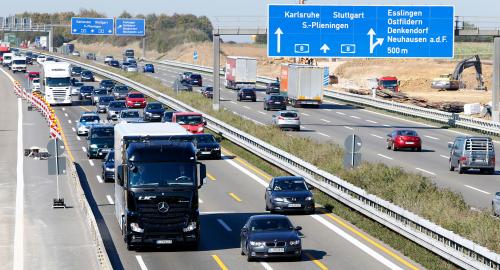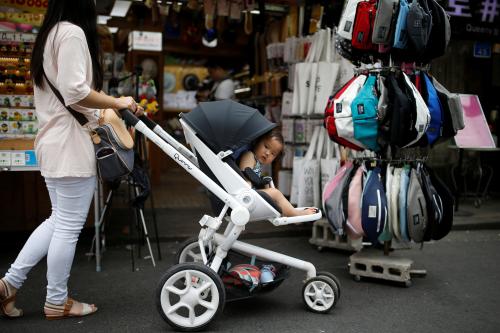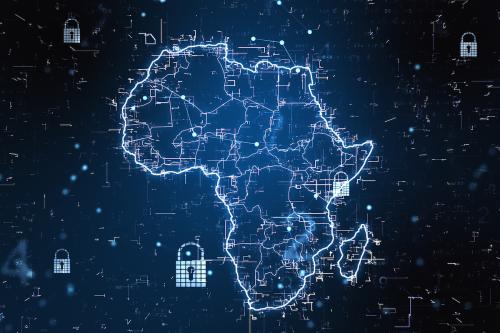Last week, leaders from 29 countries attended the “Belt and Road Forum for International Cooperation,” as well as the heads of the United Nations, International Monetary Fund, and World Bank. The Chinese President Xi Jinping called it a “rejection of protectionism.” The economic logic is compelling: China is moving up the value chain and production is increasingly taking place in the central and western parts of China where labor costs are lower. For these increasingly higher value goods, the opportunity costs are too high for sea transport. Road and rail via Central Asia could become very competitive if efficient transport corridors would make it possible that goods arrive in Europe in a few days. McKinsey & Company provides a good overview of how “the world’s largest platform for regional collaboration” might reshape global trade. The Economist provides a more critical assessment.
Mobility will remain one of the defining themes of this generation. How close are we to a tipping point? When will we buy the first driverless car? If you recently bought a new car, it is conceivable that it was your last “traditional car” (assuming you keep it for more than a decade). Philosopher and video game designer Ian Bogost has prepare a nice summary of the big changes ahead in “When Cars Fly—How driverless vehicles could change meetings, manufacturing, safety, and more.” There are also reports of a few companies working on “self-flying cars,” with Terrafugia expecting to have a prototype ready for testing by 2018. The expected price tag will likely be “several hundred thousand dollars”
If you have an online subscription to the Financial Times, you can also enjoy a deeper look into Bill Ford’s thoughts on the future of mobility. The great-grandson of the iconic Henry Ford expressed his concerns that if digital innovation were not embraced, car companies would become “low-margin assembler of other people’s technology.” He also thinks that very soon self-driving cars are technically feasible; however, “the hardware may be ready before society is ready.”
Have you ever visited a remote inhabited island and wondered were all the plastic waste was coming from? If yes, you can relate to Lili Fur and Nils Simon’s editorial in Project Syndicate about adopting a global treaty on plastic waste. If left unchanged, the current production of 322 million metric tons of plastic would quadruple by 2050.







Commentary
Future Development Reads: Outcomes from the Belt and Road Forum, flying cars, and solving the plastic waste crisis
May 19, 2017